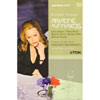Strauss, R Ariadne auf Naxos
A concept to suit ‘serious’ Strauss and a glorious Ariadne from Emily Magee
View record and artist detailsRecord and Artist Details
Composer or Director: Richard Strauss
Genre:
Opera
Label: TDK
Magazine Review Date: 8/2008
Media Format: Digital Versatile Disc
Media Runtime: 127
Mastering:
Stereo
Catalogue Number: DVWW-OPAAN

Tracks:
| Composition | Artist Credit |
|---|---|
| Ariadne auf Naxos |
Richard Strauss, Composer
Alexander Pereira, Major-Domo, Speaker Andrew Ashwin, Wigmaker, Baritone Blagoj Nacoski, Brighella, Tenor Christoph von Dohnányi, Conductor Elena Mosuc, Zerbinetta, Soprano Emily Magee, Ariadne, Soprano Eva Liebau, Naiad, Soprano Gabriel Bermúdez, Harlequin, Baritone Guy de Mey, Dancing Master, Tenor Irène Friedli, Dryad, Contralto (Female alto) Martin Zysset, Scaramuccio, Tenor Michael Volle, Music-Master, Baritone Michelle Breedt, Composer, Mezzo soprano Randall Ball, Officer, Tenor Reinhard Mayr, Truffaldino, Bass Richard Strauss, Composer Roberto Saccà, Bacchus, Tenor Sandra Trattnigg, Echo, Soprano Zurich Opera House Chorus Zurich Opera House Orchestra |
Author: Mike Ashman
The opera proper plays in a smart restaurant where Ariadne, Brief Encounter-like with a touch of Joan Crawford, mourns her loss of Theseus. The Harlequins and Nymphs are other diners and waitresses. Ariadne’s despair, then her frustrated hope that Bacchus (whose virtues and career have been read out by the Nymphs from a tabloid magazine) is Theseus, leads her to suicide by overdose. She spends the duet with Bacchus dying. It’s amazing how well this concept fits the text sung by the opera’s serious pair.
American soprano Emily Magee has recently been seen on DVD as Elsa and Ellen Orford, superb in two widely differing operas. This performance (her debut in the role) tops both of those, beginning with the prelude to the opera where her sitting, grieving, at table is the entire action. She can also sing the part gloriously. Roberto Saccà manages this tricky target for his affections well – he becomes a sympathetic assistant to a patient’s demise – and has the vocal demands well in control. Michele Breedt is the ultra-intense suicidal Composer, Michael Volle her enigmatic, blind Music-Master (an off-the-wall idea that sets off the seriousness of the interpretation well). Dohnányi, as always (one may truly say), is a master of Straussian balance and climax. The (very) close-up filming seems to tell Claus Guth’s story to perfection. Magee’s towering performance must be seen and heard.
Discover the world's largest classical music catalogue with Presto Music.

Gramophone Digital Club
- Digital Edition
- Digital Archive
- Reviews Database
- Full website access
From £8.75 / month
Subscribe
Gramophone Full Club
- Print Edition
- Digital Edition
- Digital Archive
- Reviews Database
- Full website access
From £11.00 / month
Subscribe
If you are a library, university or other organisation that would be interested in an institutional subscription to Gramophone please click here for further information.




